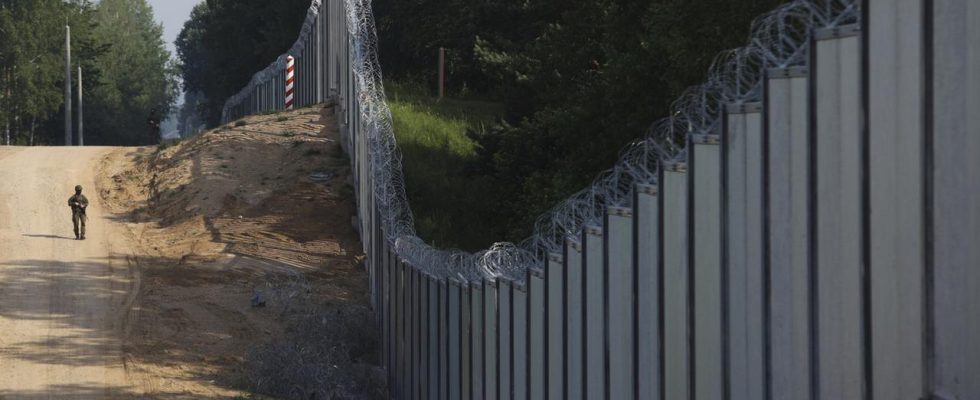Thousands of Wagner fighters could find accommodation in Belarus. Poland now wants to increase border protection in the east. Chancellor Scholz is also concerned about the transfer.
Because of the planned transfer of Russian Wagner mercenaries to neighboring Belarus, Poland wants to secure its eastern border even more. It is planned to increase the number of uniformed forces stationed there and to increase the number of “different types of obstacles and fortifications to protect our border in the event of an attack,” said Deputy Prime Minister Jaroslaw Kaczynski after a special session of a government committee for security and security defense issues. According to Kaczynski, Poland has information that up to 8,000 Wagner fighters could find accommodation in Belarus.
EU and NATO member Poland shares a 418-kilometer border with Belarus. The situation there escalated in late summer and autumn 2021: Thousands of people tried to enter the EU illegally. The European Union accuses the Belarusian ruler Alexander Lukashenko of having brought migrants from crisis regions to the EU’s external border in an organized manner in order to put pressure on the West. Poland has since secured the land sections of the border with a 5.5 meter high fence.
“What are the real intentions?”
During a visit to Ukraine, Poland’s President Andrzej Duda emphasized: “Today it is difficult to rule out that the Wagner Group’s presence in Belarus poses a potential threat to Poland, which shares a border with Belarus, and (…) to could represent Lithuania and possibly also for Latvia.” Duda said that “the question arises as to what the purpose of this transfer is. What are the real intentions of the (…) Wagner group, i.e. the Russian army, (…) in Belarus?”
Words of warning also came from the German government. “It is a situation that we are very concerned about and are looking at closely,” said Chancellor Olaf Scholz after a meeting with North Macedonia’s Prime Minister Dimitar Kovacevski in Berlin. Aggressive armies are threatening, private armies even more so. At the same time, the Chancellor stressed that Germany and its partners were not helpless in the face of the situation. “As NATO we are able to defend our territory,” said Scholz. He does not expect “the situation to change at the moment”.
France calls for more sanctions
Lithuanian President Gitanas Nauseda had already called for a strengthening of NATO’s eastern flank on Sunday because of the possible transfer of Wagner fighters to neighboring Belarus. NATO Secretary General Jens Stoltenberg stressed on Tuesday that it was still too early to draw any conclusions about the transfer of Yevgeny Prigozhin and his mercenaries to Belarus. However, he assured that the military alliance was ready to defend its members. Ukrainian President Volodymyr Zelenskyy said NATO must send a “very direct” message in defense of the alliance. A NATO summit will be held in the Lithuanian capital of Vilnius on July 11-12.
Meanwhile, France called on the countries allied with Wagner to distance themselves from the mercenary group. The government in Paris called for further strict European sanctions against the organization for its “actions in Ukraine and in Africa”, according to the Foreign Ministry.
The head of the mercenary force, Prigozhin, had meanwhile occupied the southern Russian city of Rostov-on-Don on Saturday and then had his fighters march towards Moscow. Thanks to the mediation of Lukashenko, the mercenaries broke up the uprising. According to Prigozhin, this happened about 200 kilometers from Moscow. The Wagner boss and his mercenaries were assured impunity by Russia’s President Vladimir Putin. According to Lukashenko, Prigozhin has now arrived in Belarus. Lukashenko has also offered the fighters of the mercenary force a place in his country.

